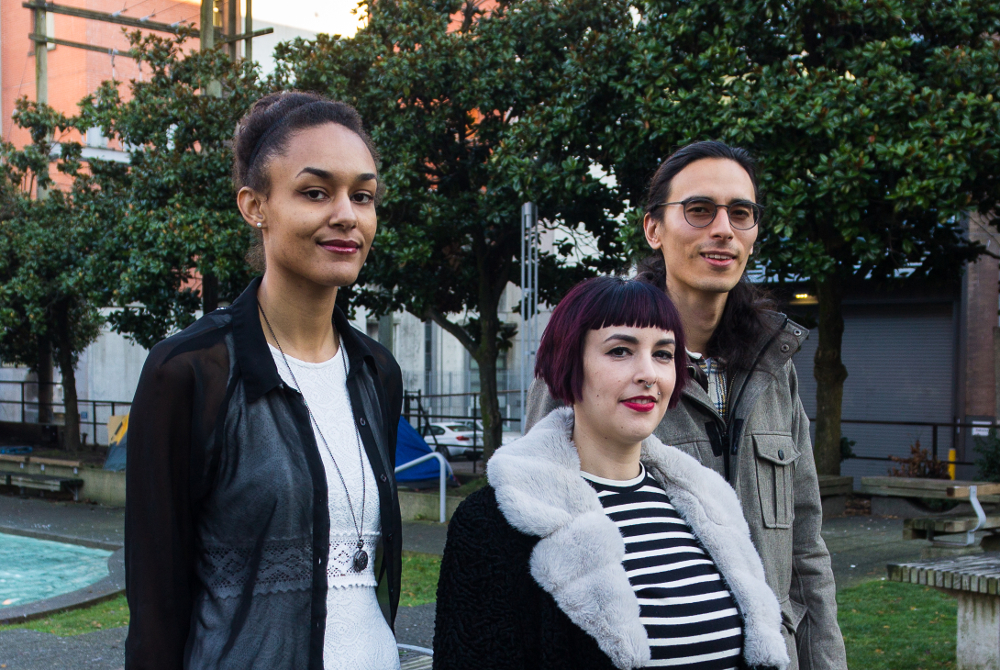The B.C. government has acknowledged forcing youth in government care to fend for themselves once they turn 19 isn’t working. But a photography exhibition in Vancouver is shining a spotlight on another unmet need of youth from care: stable long-term relationships.
Faced with the reality that one-third of Canadians ages 20 to 34 are still living with their parents, B.C.’s Ministry of Children and Family Development is hinting at changes coming to the aging out process in next February’s budget. The Ontario government has already extended care until age 21 for youth who finish high school.
But while there’s plenty of discussion on financially supporting youth transitioning to adulthood, Melanie Doucet says no one is talking about the emotional and mental supports youth leaving care lack without long-term, supportive relationships.
“Because most of the relationships that you have in care are temporary and paid for,” said Doucet, a former youth in care who credits her relationships with trusted adults for helping her “survive” the aging out process. “So when you reach the age of majority, those relationships tend to get cut off.”
Almost 20 years after she left foster care at age 18, Doucet, now a social work PhD candidate at McGill University and a Pierre Elliott Trudeau Foundation scholar, is doing her dissertation research on aging out with eight youth from care in Greater Vancouver, ages 19 to 29, who are working on a photo-voice project called Relationships Matter.
Together they hope the free Dec. 18 Relationships Matter gallery showing at Roundhouse Community Arts and Recreation Centre, featuring original photography the youth have taken during the two-month project, will draw attention to the importance of healthy relationships and the barriers youth in care face in forming and maintaining them.
The event will also feature prominently the young people’s suggestions for improving the system so that youth who age out are adequately supported in their transition into adulthood.
It’s a rare opportunity for the public to hear directly from the most knowledgeable experts on the child welfare system, says Doucet: the youth who have lived through it.
A perfect way to confront people
Doucet and her team have been meeting every Saturday since early October for three hour sessions, learning photography basics with the Nikon Coolpix cameras Doucet gave them, critiquing and analyzing their photos, and discussing how they can use their experience in care to change child welfare in B.C.
Keeshana Emmanuel, 19, got involved with the Relationships Matter project because of her developing interest in photography. But she also recognized it as a rare opportunity to be heard by people working with youth in care and the public at large.
“Because my word has always been tossed to the side and never taken seriously, I didn’t feel like I had any power to do anything,” Emmanuel said.
“Then this project came along and I thought, this would be a perfect way to confront the people who are going to be continuously impacting youths’ lives in Canada, about the things that I and other youth have been through.”
Martha, 19, and Hari, 26, each enjoyed the opportunity to be an equal participant in the research, not a nameless subject, as is so often the case with studies on youth in and from care.
“A lot of the studies that I’ve been involved with before were quantitative, where you just fill out a form and your information is transformed into a number, and then that’s it,” said Martha, who took photography in high school.
“So it’s interesting to see how a creative process like photography can be used to do analysis.”
Hari also studied photography in high school, and attended film school in 2010. His interest in the project stemmed from the convergence of opportunities for personal creativity, to work with youth from care like him, and to help create a culture of autonomy for youth like them.
“What I like about the project, too, is that it’s not just about the photo aspects but the voice aspects,” he said. “We got to share our stories with each other, and Melanie’s been transcribing and documenting our experiences, and doing it in a way where it doesn’t feel exploitative. And where we can represent ourselves and... provide more insight into this collective experience.”
He added: “We’re providing a collective oral history around our experiences. And in that sense it’s very liberating, because there aren’t many venues to express these things and have them received in a good way.”
Representatives from the provincial ministries of children and family development, mental health and addictions, education, advanced education, and Indigenous relations and reconciliation will be at the Roundhouse Community Centre gallery showing on Monday, as will Linda Hughes, chief investigator in the Representative for Children and Youth's office. *
But every Relationships Matter participant The Tyee spoke to emphasized the importance of the public attending the show to become more aware of the problems in our child welfare system — part of a larger process to better support youth in and from care in B.C.
“I think it’s really important that we shift the conversation away from independence, autonomy, and independent living [for youth who age out], because that’s not a realistic standard and that’s not how kids who are not in care live,” Doucet said.
“I want to change that whole discourse, and focus more on interdependence, where it’s normalized for people to be connected and to count on each other in a nurturing and supportive way.”
*Corrected at 10:35 a.m Dec 15th ![]()
















Tyee Commenting Guidelines
Comments that violate guidelines risk being deleted, and violations may result in a temporary or permanent user ban. Maintain the spirit of good conversation to stay in the discussion.
*Please note The Tyee is not a forum for spreading misinformation about COVID-19, denying its existence or minimizing its risk to public health.
Do:
Do not: